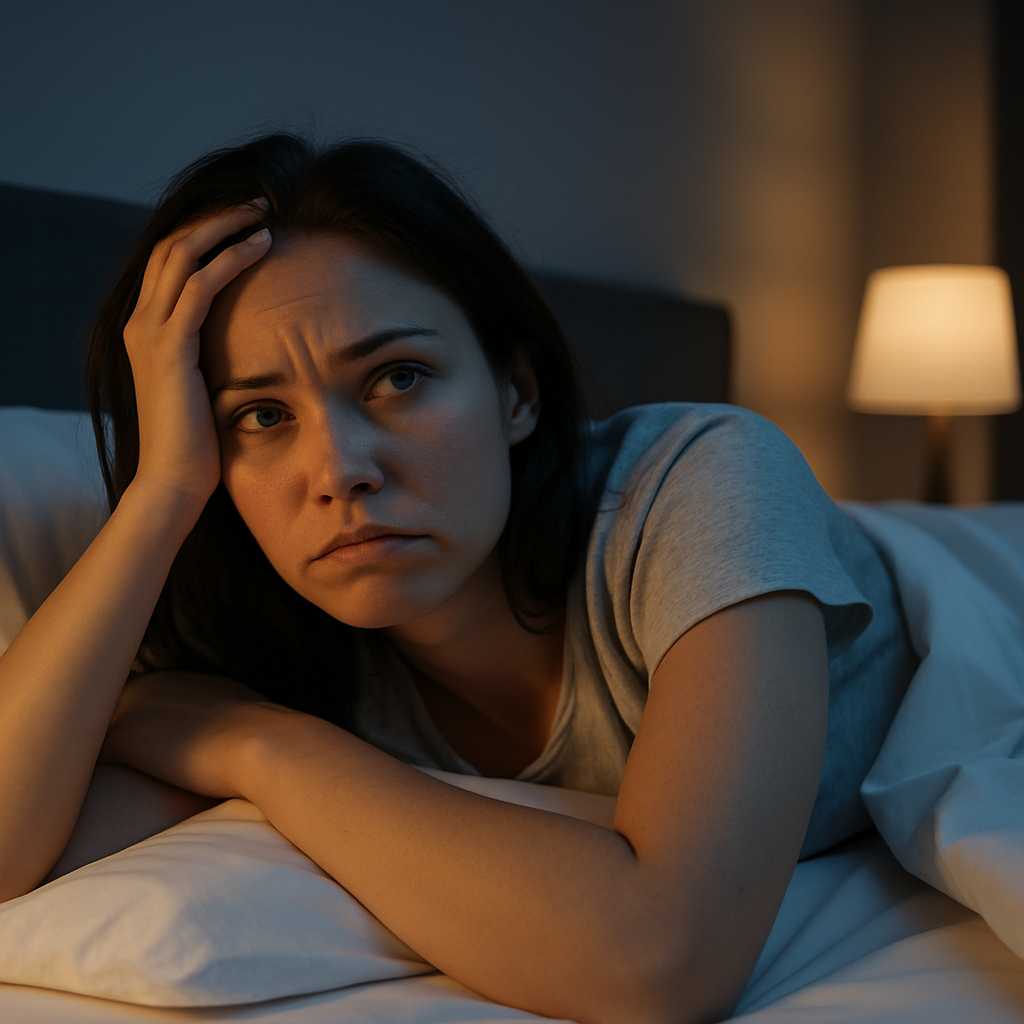Why Can’t I Sleep Even When I’m Exhausted?
“That ‘tired but wired’ feeling—your body says sleep, but your brain stays wide awake.”
You’re Not Broken—You’re Just “Tired But Wired”
If you've ever collapsed into bed at the end of a long day—eyes heavy, body aching—only to find yourself wide awake an hour later, you're not alone. It's one of the most frustrating experiences people with insomnia face: you feel exhausted, but your brain won’t let you sleep.
So what’s actually going on?
Tiredness ≠ Sleepiness
One of the most important—yet rarely discussed—concepts in sleep science is the difference between tiredness and sleepiness.
Tiredness is the physical feeling we all recognize: dry eyes, heavy limbs, frequent yawning. You feel like you've hit a wall.
Sleepiness, on the other hand, is a very specific biological state. It means your body has built up enough sleep pressure—via your sleep-drive system—to fall and stay asleep.
In Cognitive Behavioral Therapy for Insomnia (CBT-I), we define sleepiness as the ability to fall asleep within 10–30 minutes. Anything outside that window likely means your system isn’t quite ready—even if you feel tired.
Why This Mismatch Happens
This “tired but wired” phenomenon usually means there’s a disconnect between your body’s internal sleep pressure and your brain’s arousal system. You’re physically wiped out, but your sleep-drive system hasn’t built up enough momentum to tip you into real, sustained sleep.
This often leads to:
Lying in bed longer than your body is ready for
Falling asleep briefly, then waking fully alert
Feeling anxious or defeated when sleep doesn’t come quickly
And that anxiety? It only makes things worse. The more you try to “make” sleep happen, the more your brain activates, pushing sleep even further out of reach.
It’s Not About Trying Harder
Here’s the biggest misconception I see in my practice:
People believe they can force sleep to happen if they just find the right trick.
So they start chasing solutions:
Another guided meditation
A perfectly optimized bedroom
A new calming tea
And when none of it “works,” the frustration grows.
But sleep isn’t something you do. It’s something your body allows—when the conditions are right. You can’t outsmart biology. But you can work with it. That’s what CBT-I therapy is designed to do.
Here’s What to Do Instead
The good news? Once you understand how your sleep-drive system works, you can use that knowledge to map out a sleep plan that’s actually effective.
CBT-I is built on this exact principle. It teaches you how to:
Time your sleep to match your body’s real rhythms
Break the pattern of tired-but-wired nights
Get back in sync with your sleep system—without guessing, forcing, or blaming yourself
When you stop trying to make sleep happen, and start aligning with how your body actually works, everything changes.
Ready to Sleep Again?
If you’re stuck in the cycle of exhaustion without rest, I’d love to help.
Book a consultation to see if CBT-I is right for you.

